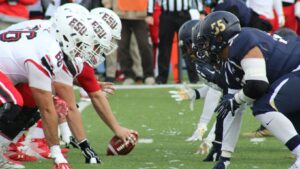If you started a workout today, your body will be able to rebuild muscle for at least 72 hours following the completion of an intense workout.
Protein synthesis is the process of cells repairing and making new proteins. It takes place in your body after a workout, but how long it lasts depends on a few factors.
While protein synthesis is thought to continue for at least 48 hours after exercise, research shows that getting postworkout nourishment as soon as possible, preferably within two hours, is critical.
People frequently wonder how long the increase in protein synthesis lasts after a workout.
Following Heavy Resistance Exercise, the Time Course for Increased Muscle Protein Synthesis. Muscle protein synthesis rate (MPS) is increased by 50% in humans four hours after a session of intense resistance exercise and by 109 percent in people 24 hours after training.
How long do muscles take to recuperate after a workout? The Importance of Recovery A muscle requires between 24 and 48 hours to recover and regenerate, and using it again too quickly causes tissue destruction rather than growth. This implies that you should never work the same muscle groups twice in a succession during a weight-training session.
How long do you remain anabolic after a workout, given this?
The anabolic window is a 30-minute window that exists after you complete an exercise and allows you to feed your muscles. The body is in a condition that permits the muscles to more quickly receive critical nutrients from meals or a protein shake during this 30-minute timeframe.
When should you eat protein after working out?
As a result, it’s best to eat a balance of carbohydrates and protein as soon as possible after working out. Many experts advocate having your post-workout meal within 45 minutes, however this does not have to be perfect.
Answers to Related Questions
Protein synthesis is triggered by a variety of factors.
Anabolic hormones promote muscle development by either boosting protein synthesis (growth hormone, insulin-like growth factors, and testosterone) or lowering protein breakdown (growth hormone, insulin-like growth factors, and testosterone) (insulin). Only in the presence of a plentiful supply of amino acids can protein synthesis become enhanced.
How much protein should you consume in order to gain muscle?
One gram of protein per pound of body weight, or 2.2 grams per kilogram, is a standard advice for muscle growth. Other experts believe that 0.7 grams of protein per pound, or 1.6 grams per kilogram, is required ( 13 ).
Is it true that carbohydrates are required for muscular growth?
Carbohydrates are the main source of energy for humans. Carbohydrates are vital for muscle growth because they are protein sparing, meaning the body uses glycogen instead of breaking down muscle tissue for energy. Carbohydrates consumed after an exercise may assist reduce muscle loss and aid in muscle restoration.
Does protein help you gain muscle?
Muscle mass and strength are increased.
When you undertake strength training, consuming enough protein helps you retain your muscle mass while also promoting muscular development. Protein may help you increase muscle growth and strength while also preventing muscle loss during weight reduction.
Is it true that carbohydrates are required for protein synthesis?
These experiments show that adding carbohydrate to a protein dosage known to increase protein synthesis maximally (20-25 g of high-quality protein rich in leucine) has no additive or synergistic impact on muscle protein synthesis and breakdown.
How long does it take for muscle to be synthesized?
(1) Yes, long before the muscle is healed, muscle protein synthesis (MPS) rates often revert to baseline. In trained people, MPS rates often return to baseline within 24 hours, although muscle recovery may take up to 4 weeks if the training is intense enough.
Is it true that as you workout, your protein production increases?
Because more amino acids are available to the muscle during the early phases of post-exercise recovery, protein supplementation before or during exercise permits post-exercise muscle protein synthesis rates to be increased more quickly.
How long does it take for muscle protein to be synthesized?
Muscle protein synthesis rate (MPS) is increased by 50% in humans four hours after a session of intense resistance exercise and by 109 percent in people 24 hours after training.
Is the anabolic window of 30 minutes real?
The metabolic window (also known as the anabolic window or protein window) is a phrase used in strength training to describe the 30-minute time after exercise (give or take, depending on the person) during which nutrition may change the body from a catabolic to anabolic state.
Is there a window of opportunity for anabolism after a workout?
Several studies have shown that there is a “anabolic window of opportunity” following training when it comes to optimizing training-related muscle adaptations [3-5]. However, the significance – and even the existence – of a post-exercise ‘window’ depends on a variety of conditions.
Is the time of your post-workout meal important?
Does the Order in Which Nutrients Are Consumed Make a Difference? Nutrient timing entails consuming meals at certain times to obtain specific results. It’s said to be crucial for muscular building, athletic performance, and fat reduction. This is nutritional timing, which you may have experienced if you raced for a meal or protein drink after an exercise.
What is anabolic recovery, and how does it work?
Anabolic training, as opposed to catabolic exercise, refers to the development of muscle from protein and nutrients. The goal of anabolic training is to increase lean muscle mass. For example, eating well before lifting weights can provide you the energy and endurance you need to gain muscle growth.
How can you tell if you’ve overtrained?
Here are nine overtraining warning signals to watch out for:
- Performance has dipped.
- Perceived exertion during exercises has increased.
- Excessive tiredness.
- Moodiness and agitation.
- Insomnia, often known as restless sleep, is a condition in which a person is unable to
- Appetite loss is common.
- Injuries that have been bothering you for a long time.
- Unbalanced metabolism.
What is the ideal amount of rest for muscles?
Because muscle soreness might peak two days after exercise, some study shows that a minimum of 48 hours of rest is ideal for healing and injury prevention, at least among the elite athletes tested.
How often should I train out in order to grow muscle?
At least three times each week, you should be lifting weights. According to the study, at the very least two days of exercise each week are required to enhance muscle development.
What is the process of muscle recovery?
The body may also restore energy resources and mend damaged tissues during recovery. Muscle tissue breakdown and depletion of energy reserves (muscle glycogen), as well as fluid loss, occur as a result of exercise or any other physical activity.
What substances may assist you heal your muscles?
The Top 4 Recovery Supplements
- Creatine. Creatine monohydrate, or simply “creatine,” is a popular single-ingredient powder as well as a component in pre- and post-workout supplements.
- L-Glutamine.
- Amino Acids with Branched Chains (BCAAs)
- Beta-Alanine.
“How long does protein synthesis last” is a question that has been asked many times. The answer to this question varies, but in general, the amount of time it takes for protein synthesis to occur after a workout can be anywhere from 3-24 hours. Reference: how long does protein synthesis last.












